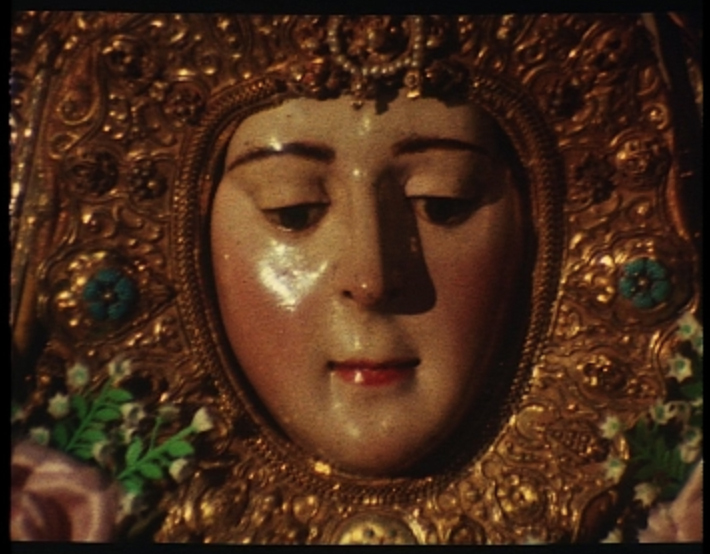Rocío (Fernando Ruiz Vergara, 1980)
Rocío and its director Fernando Ruiz Vergara repeatedly challenged the idea of a national centrality of the Spanish state. Developed in the midst of the transition to democracy, this documentary essay, the only film in the filmmaker's filmography, was seized and judicially censored in the 1980s for pointing out one of the perpetrators of fascist crimes in 1936, after the military coup that led to the civil war and four decades of dictatorship. Rocío dismantled the connections between economic, religious and political powers hidden behind the most massive Marian pilgrimage in the Iberian peninsula. The links between the religious brotherhoods and the Francoist state, the tensions between genuine popular expression, the creation of myths and the construction of a Catholic and national identity, and those underlying the ownership of land and labour revealed the heavy burden of a regime that refused to fade away. Concha Barquero and Alejandro Alvarado will introduce a reconstruction of the uncensored version of the film.
9 December 2024, 20:00
Kino Toni
ZHdK, Toni-Areal, Pfingstweidstrasse 96, 8005 Zürich
Concha Barquero and Alejandro Alvarado are filmmakers, lecturers and researchers at the University of Málaga. For the last ten years they have been carrying out academic and cinematographic research on the work of the Andalusian filmmaker Fernando Ruiz Vergara. This research resulted in the book La poscensura en el cine documental de la transición española (2016) and their short film Descartes (2021). They have recently finished the feature film Caja de resistencia about the filmmaker’s unfinished projects.
This event is part of an ongoing cooperation between the SNSF-funded research project Paranational Cinema –Legacies and Practices at the Department of Film Studies, University of Zurich and the Master Cultural Critique in Curatorial Studies at Zurich University of the Arts.
